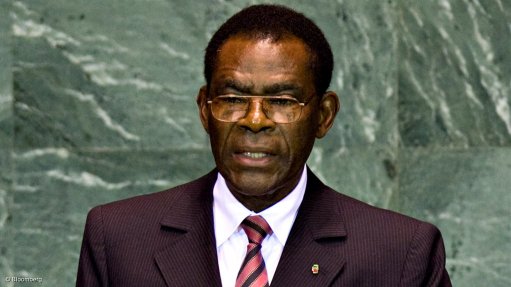Best practices, governance can create sustainable local wildlife economies
Sustainable wildlife economies that directly benefit local communities and provide resources to support development can be created, but require best practices and standardisation to ensure the quality, safety and marketability of products and services, as well as transparency across the value chain.
Industry organisation Wildlife Producers Association of Zambia operations manager Chanda Mwale, during an 'Inclusive Wildlife Economies' webinar hosted by sustainable business company Oppenheimer Generations, said that creating platforms for partners within the broader value chain reduced silos of activity and improves collective actions.
"An inclusive wildlife economy requires multiple role-players, enabling policy and best practices, as well as accountability, transparency and generosity. A generous spirit is required, as these wildlife economies will not exist only to benefit the private sector, but all stakeholders along the value chain," she said.
The intersection of society, economy and the environment enabled the achievement of sustainable wildlife economies that can be leveraged to address social and economic needs of communities, said Chinhoyi University of Technology Associate Professor and School of Wildlife, Ecology and Conservation deputy dean Victor Muposhi.
"Communities share social ties, cultural and heritage-related ties and are governed by the same norms, values and customs. Therefore, communities of people share common perspectives about their surroundings, needs and challenges, as well as advocating for and supporting each other," he said.
Similarly, it was communities that interacted with wildlife and had deep historical ties with their natural environment, but many communities surrounding protected or conservation areas tended to be marginalised and have experienced historical injustices, he said.
"We can leverage wildlife economies for sustainable development, economic growth and industrialisation. Wildlife economies are underpinned by the value and contribution of the biological ecosystem to foster sustainable growth through enterprises and livelihoods based on biological systems," Muposhi said.
There are various approaches to inclusive wildlife economies, including sustainable tourism, ecotourism, hunting, game ranching, forestry products and bioprospecting, but communities must directly benefit.
Integrated and cohesive communities could seek cooperation with public and private role-players, institutions and organisations to build capacity and explore funding opportunities to support value addition of natural resources to attain sustainable livelihoods, he said.
"For this to happen, the governance and policy environment must be enabling. The aim is to foster resilient communities that can leverage value chains for economic growth," he added.
Meanwhile, African Wildlife Economy Institute research fellow Dr Tariro Kamuti said there was a need to increase levels of research and development in the wildlife economy. There were various government departments, universities and private actors and institutions doing research, but greater collaboration throughout the broader ecosystem from communities and countries was necessary to emphasise issues that should be researched to explore ways natural resources could be tapped sustainably.
Communities harvest or access natural resources, but existing wildlife economies typically do not involve value addition. There was a need to look at ways resources could be used to develop new products and increase the value of the natural resources, he said.
"This will require investment in technologies and equipment to maximise the potential increase in value. This requires a good environment for investment, such as infrastructure, and must also investigate how communities in or near protected areas can be improved to reduce the pressure on the natural resources.
"For example, many communities remain energy-poor and rely on their surroundings for firewood, which can lead to environmental damage. Improving the provision of energy to people to reduce their direct reliance on wood for their energy needs will benefit natural ecosystems," he said.
Further, natural resources are often seasonal and only consumed during the times that they are available. Research and development is therefore important to investigate issues relating to post-harvest needs and technologies.
"Many local people gather various resources, such as fruits, that they bring to central points to distribute and potentially make money from. However, what is needed are true value chains so that products can be standardised for formal markets," Kamuti said.
"Conservation is not separate from the livelihoods of people, and goes hand-in-hand in ensuring that what we are doing is sustainable," he said.
Comments
Press Office
Announcements
What's On
Subscribe to improve your user experience...
Option 1 (equivalent of R125 a month):
Receive a weekly copy of Creamer Media's Engineering News & Mining Weekly magazine
(print copy for those in South Africa and e-magazine for those outside of South Africa)
Receive daily email newsletters
Access to full search results
Access archive of magazine back copies
Access to Projects in Progress
Access to ONE Research Report of your choice in PDF format
Option 2 (equivalent of R375 a month):
All benefits from Option 1
PLUS
Access to Creamer Media's Research Channel Africa for ALL Research Reports, in PDF format, on various industrial and mining sectors
including Electricity; Water; Energy Transition; Hydrogen; Roads, Rail and Ports; Coal; Gold; Platinum; Battery Metals; etc.
Already a subscriber?
Forgotten your password?
Receive weekly copy of Creamer Media's Engineering News & Mining Weekly magazine (print copy for those in South Africa and e-magazine for those outside of South Africa)
➕
Recieve daily email newsletters
➕
Access to full search results
➕
Access archive of magazine back copies
➕
Access to Projects in Progress
➕
Access to ONE Research Report of your choice in PDF format
RESEARCH CHANNEL AFRICA
R4500 (equivalent of R375 a month)
SUBSCRIBEAll benefits from Option 1
➕
Access to Creamer Media's Research Channel Africa for ALL Research Reports on various industrial and mining sectors, in PDF format, including on:
Electricity
➕
Water
➕
Energy Transition
➕
Hydrogen
➕
Roads, Rail and Ports
➕
Coal
➕
Gold
➕
Platinum
➕
Battery Metals
➕
etc.
Receive all benefits from Option 1 or Option 2 delivered to numerous people at your company
➕
Multiple User names and Passwords for simultaneous log-ins
➕
Intranet integration access to all in your organisation


















